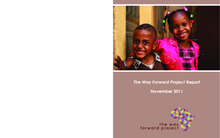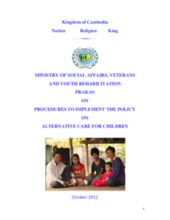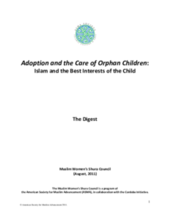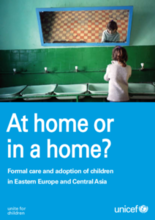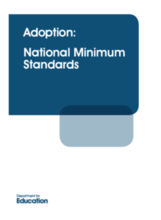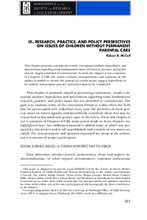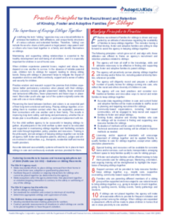Displaying 581 - 590 of 660
Utilizing the United Nations Convention on the Rights of the Child and the Guidelines for the Alternative Care of Children, this paper from Monographs of the Society for Research in Child Development Volume 76, Issue 4 examines critical components and current characteristics of alternative care for children in low‐resource countries.
This monograph reviews literature pertaining to children without permanent parents.
This chapter from Monographs of the Society for Research in Child Development Volume 76, Issue 4 first presents a review of research on the development of adopted children, focusing on meta‐analytic evidence and highlighting comparisons between adopted children with and without histories of early adversity.
The Congressional Coalition on Adoption Institute’s The Way Forward Project brought together a group of international experts to discuss opportunities and challenges facing governmental and non-governmental organization leaders in six African nations (Ethiopia, Ghana, Kenya, Malawi, Rwanda, and Uganda) as they work to develop systems of care that serve children in and through their families.
This Prakas is intended to define roles and responsibilities of relevant competent agencies and establish procedures, operational guides, and forms to implement the Policy on Alternative Care for Children.
In this position paper, the Muslim Women’s Shura Council considers whether adoption can be possible within an Islamic framework.
Published by UNICEF, the report At Home or in a Home, provides an overview of the major trends and concerns about children in formal care and institutions as well as adoption Central and Eastern Europe and Central Asia.
This document contains the UK National Minimum Standards (NMS) applicable to the provision of adoption services.
This chapter presents conclusions, trends, conceptual analyses, hypotheses, and speculations regarding some fundamental issues of research, practice, and policy that are largely unsettled or controversial, regarding children without permanent parental care.
This resource offers principles to frame an agency's foster care recruitment and retention practices related to siblings.

